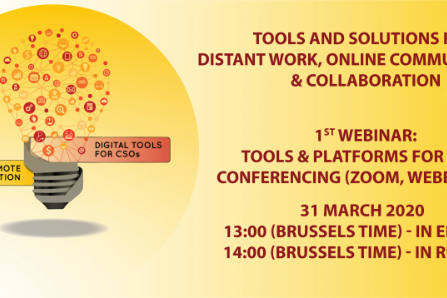Last week, the University of Cambridge and several high-profile government and industry partners announced plans to established a new edtech research hub. Simply known as the “EdTech Hub,” the initiative, which is being funded by UK Aid and the World Bank among other partners, will support an entire range of research activities in the edtech field.
Above all else, the new research hub will concentrate on solving the education and skill gap that persists in the world’s emerging economies. Indeed, of the £20 million of aid being funneled into the EdTech Hub, half of the funds will be used to support research on edtech in emerging economies. Notably, although the hub will be based at the University of Cambridge, it is already integrated with global partners. eLearning Africa and AfriLabs are among the EdTech Hubs collaborating organizations.
The University of Cambridge’s EdTech Hub
While the EdTech Hub’s website still offers only preliminary details about its mandate, a recent press release issued by the UK Government’s Department of International Development (DFID) makes it clear that the EdTech Hub, which will initially be funded for eight years, is being established to drive edtech innovation and reach several humanitarian goals.
As stated in a press release about the EdTech Hub published on the June 18th, access remains a major issue in many parts of the world, including Africa and Asia where local authorities frequently are able to purchase hardware (e.g., tablets for use in a classroom setting) but lack the infrastructure and training needed to make the most of such tools.
With considerable support from DFID and the World Bank, the new EdTech Hub will represent the world’s largest research cluster focused on how to use edtech to expand educational access and job readiness around the globe.
In the June 18th press release, Harriett Baldwin, the Minister of State for Africa at the Foreign and Commonwealth Office and Minister of State at the DFID, said, “Educational technology can transform how children learn, but in many developing countries it is often only available in the wrong language or schools do not have the right tools to keep their software in working order.”
The World Bank’s Jaime Saavedra also emphasized that above all else the new EdTech Hub based at the University of Cambridge will focus on overcoming the notable education and skills gap that persists in emerging economies. In the June 18th release, Saavedra observed, “Today over half of children in the world are not learning. How can we separate the hope from the hype in harnessing the disruptive power of new technologies to tackle this global learning crisis?”
Hub Will Support Research, Development, and Testing
Sara Hennessy, a professor in the Faculty of Education at the University of Cambridge, is also excited about the new research hub’s potential to make a difference in the lives of children in some of the world’s most struggling economies. “This huge investment and sustained commitment by DFID and partners to improving the educational opportunities for disadvantaged children in key low income regions is extremely welcome,” says Hennessy. She also emphasizes, “Rather than hoping for the best, we have to carefully review and iterate, generating insights from rigorous research and applying them in practice.”
Specifically, the new EdTech Hub at the University of Cambridge hopes to facilitate four types of work. First, the hub will provide support for research and development initiatives with the aim of building new digital tools for learners. Second, it will offer a platform for researchers around the globe to share research and best practices. Third, the EdTech Hub will help support robust testing of new educational technologies. Finally, the EdTech Hub will offer technical support, especially to international governments who are eager t build up their edtech infrastructure but may not be able to do so on their own.
Photo by Patrick Amoy on Unsplash.
Source: news.elearninginside.com





Comment